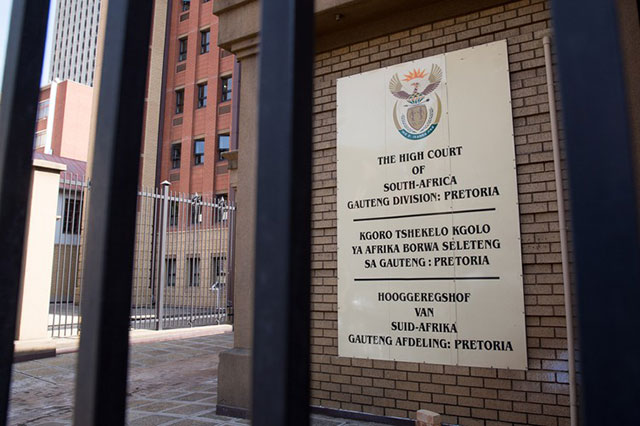Judge Colleen Collis of the Pretoria High Court said she was mindful of the 30 June deadline for the Zimbabwe Exemption Permit when she reserved judgment on Friday. Archive photo: Ashraf Hendricks
By Ciaran Ryan
![]()
- Civil society organisations have challenged the decision by government to terminate the Zimbabwean Exemption Permit system on 30 June.
- Their arguments, and counter-arguments by the state, and the All Truck Drivers Forum and Allied South Africa, were heard in the Pretoria High Court this week.
- On Friday, argument by the Zimbabwean Exemption Permit Holders was heard, but the state asked for their case to be dismissed with costs.
- Judgment has been reserved.
The Pretoria High Court reserved judgment in the case brought by the Zimbabwean Exemption Permit Holders (ZEPHA) and other civil society organisations against the state. ZEPHA is seeking permanent residence in South Africa for Zimbabwean Exemption Permit (ZEP) holders.
Much of the morning was spent in technical arguments about the validity of amendments made to ZEPHA’s notice of motion, specifically two words: “to be” which was changed to “apply for”. ZEPHA had previously asked for ZEP holders to be given permanent residence. This was then changed to ask the court to allow them to apply for permanent residence, as required by the Immigration Act.
ZEPHA had also asked for the Minister of Home Affairs’ decision not to renew the ZEP scheme to be set aside as unlawful and invalid.
Arguing for the state, advocate Myron Dewrance said the ZEP permit specifically prohibited the holder from applying for permanent residence. “It gives you the right to be in the country, but not the right to permanent residence,” he said. He then asked the court to dismiss ZEPHA’s case with costs.
Dewrance said ZEPHA’s case was insufficiently pleaded and had been litigated in a reckless manner.
ALSO READ | ZEP: No rights were taken away, Home Affairs’ lawyers tell court
Advocate Simba Chitando, representing ZEPHA, said the state was disingenuous in taking a procedural step to avoid arguing the merits of the case. In papers before the court, ZEPHA argues that the Immigration Act makes provision for those residing in South Africa under a variety of visa programmes to apply for permanent residence and that this right should be granted to ZEP holders.
The exemption permit system was introduced in 2009 under the Dispensation of Zimbabweans Project, which allowed some 250,000 Zimbabweans unlawfully in South Africa to regularise their status, allowing them to live, work and study in South Africa. This scheme was extended and renamed the Zimbabwean Special Permit in 2014 and the Zimbabwean Exemption Permit in 2017. In 2021, Home Affairs Minister Dr Aaron Motsoaledi announced that the ZEP system would not be renewed, though two temporary extensions were granted, most recently until 30 June 2023.
ZEP holders have until June to apply for alternative visas or waivers, after which they risk deportation to Zimbabwe. This will impact 178,000 ZEP holders and their families, resulting in a potential crisis that could impact hundreds of thousands of people, if family members are considered.
ALSO READ | Helen Suzman Foundation slams Home Affairs’ decision to terminate ZEP system
Earlier in the week, the court heard arguments from the Helen Suzman Foundation, the Zimbabwe Immigration Federation (ZIF) and the Consortium for Refugees and Migrants in South Africa, seeking to have the minister’s decision to terminate the scheme set aside. The ZIF is also asking the court for an interim interdict to prevent the ZEP system ending on 30 June 2023, so that ZEP holders will not be at risk of being declared illegal foreigners.
ZEPHA went further in arguing that ZEP holders should have the right to apply for permanent residence.
Argument was also heard from the All Truck Drivers Forum and Allied South Africa. They said that the blanket exemptions were unlawful in the first place, and the minister had no right to extend the scheme.
Judge Colleen Collis said the court was mindful of the urgency of the matter as the 30 June 2023 deadline approached, and reserved judgment.
Follow African Insider on Facebook, Twitter and Instagram
Picture: GroundUp
For more African news, visit Africaninsider.com


